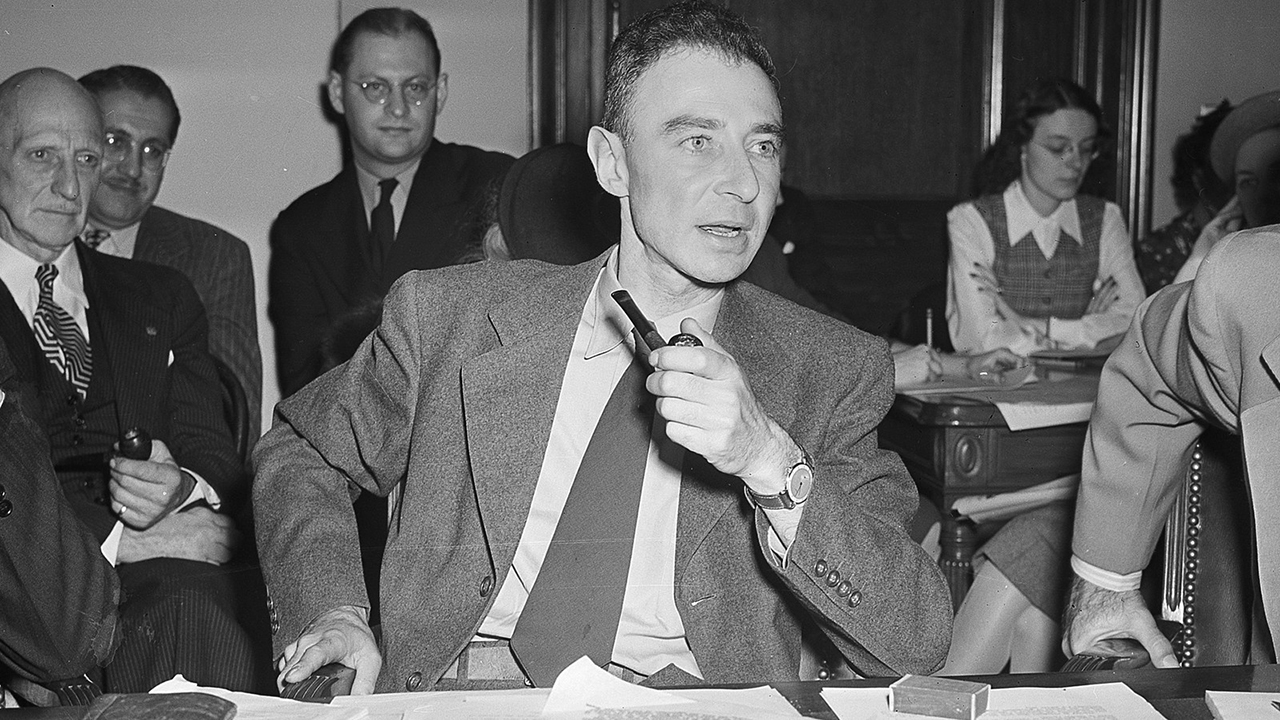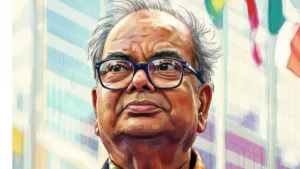The emergence of the atomic bomb signifies a crucial juncture in the narrative of human history. The creation and use of this formidable weapon during World War II ushered in profound shifts in the dynamics of warfare and global diplomacy. Central to this revolutionary scientific undertaking was the enigmatic and brilliant J. Robert Oppenheimer, commonly acknowledged as the “Father of the Atomic Bomb.”
About Oppenheimer
Oppenheimer was born in New York in 1904 and displayed early academic talent. He has a well-educated family and has a privileged upbringing.
Education
- Oppenheimer attended New York’s Ethical Culture School, where he excelled in a variety of courses, including physics and languages.
- He has got a Bachelor of Science in Chemistry in 1925 from Harvard University.
- Then he completed his PhD in Physics at the University of Gottingen in Germany.
Scientific Carrier
- After completing his doctorate, Oppenheimer went to the United States and joined the faculty of the University of California, Berkeley.
- He made substantial contributions to theoretical physics throughout the 1930s, particularly in quantum mechanics and spectroscopy. He swiftly rose to prominence in the scientific community.
The Manhattan Project
When World War II broke out, Oppenheimer’s career took a drastic shift. In 1942, he was named scientific head of the Manhattan Project, a top-secret US government endeavor to create this atomic weapon. Oppenheimer plays a key role in the successful development of the first nuclear bombs, leading a team of great scientists and engineers.
The Trinity Test and Aftermath
The world’s first atomic bomb exploded in New Mexico in July 1945, bringing the Manhattan Project to a close. The successful test signaled the beginning of the nuclear age. Oppenheimer, on the other hand, was disturbed by the ethical and moral implications of unleashing such powerful weapons.
He famously quoted the Hindu scripture, the Bhagavad Gita, saying, “Now I am become death, the destroyer of worlds.”
Post-War Struggles
After the war, Oppenheimer’s security clearance was revoked due to suspicions about his previous involvement with left-wing organizations and alleged connections to Communist sympathisers. He lost his security clearance 1954, effectively ending his direct engagement in government science initiatives.
Later Years
Oppenheimer devoted the later part of his life to teaching and research. He returned to academia and lectured at Princeton’s Institute for Advanced Study. Despite the criticism, he continued to make contributions to theoretical physics and mentored a new generation of scientists.
Legacy
Robert Oppenheimer’s scientific discoveries and role in the development of the atomic bomb are important to his legacy. Even though his later years were tarnished by political problems, he is remembered for his brilliance as a scientist and his leadership during the Manhattan Project.
Death
Robert Oppenheimer died in 1967, leaving behind a complex and lasting legacy that is still disputed and studies today.
Find More General Studies News Here




 Legendary Bengali Author Shankar Passes ...
Legendary Bengali Author Shankar Passes ...
 List of Dadasaheb Phalke Award Winners f...
List of Dadasaheb Phalke Award Winners f...
 Which Dance Form is known as the Ballad ...
Which Dance Form is known as the Ballad ...








